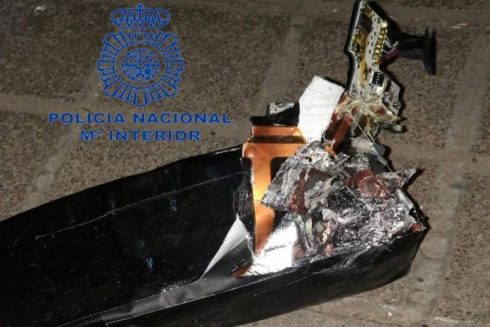USED masks and gloves are being tossed to the ground across Spain, causing health and safety hazards as well as environmental issues.
Since it became mandatory to wear masks in public, the protective material is becoming increasingly discarded on the streets.
PPE litter is not only a visible eyesore, it’s more hazardous than normal rubbish, as it has a higher risk of spreading COVID-19.
“If they are not disposed of properly, they can pose a risk to others,” warned Fernando Simon, director of the Centre for Coordination of Health Alerts and Emergencies.
Simon made the warning at the daily press conference following the meeting of the Technical Committee for de-escalation, chaired on Monday by Prime Minister Pedro Sanchez, adding that the discarded gear can carry the virus.
As the health expert explained, although there are ‘fewer cases’ of COVID-19 in Spain, it is not known which person has used the mask or gloves that are lying in the street.
“Masks or gloves left on the floor can be potentially infected, so if they are not disposed of properly they can pose a risk to others,” he said.
He added that the fight against the novel coronavirus belongs to ‘everyone,’ and that ‘to protect yourself, you have to protect others.’
Not only is PPE litter a blot on the landscape and a health hazard, it also harms the environment.
Though these single-use products are incredibly resistant when it comes to protecting individuals against catching or spreading COVID-19, they are also extremely light-weight. This can cause the items to be easily swept away with the wind and end up in waterways or in other natural habitats where they become a hazard to wildlife.
Apart from adding microplastic pollution to the ecosystem, birds and marine animals may mistake the rubber or textile for food and ultimately choke on them.
The issue has become so widespread that many local law enforcement officers have begun to hand out fines.
In Spain, fines for this offence can range between €100 and €3000.
People from all over the world have taken to social media in uproar about others abandoning their gloves and masks as soon as they’re done with them, instead of disposing of them properly.
To avoid the public health risk associated with the masks, they have to be thrown out and sent to the landfill to be discarded properly.
They can also be recycled properly, a service offered by two factories in Spain’s Andalucia who recycle one million sanitary masks a day.
According to the WHO (World Health Organization) if someone is sick, or caring for someone sick, masks should be removed from behind, wrapped in a tissue, and thrown out in a closed rubbish bin in order to prevent the spread of the virus.
Hands should then be washed immediately with soap and water for at least 20 seconds.
If an infected person uses the mask correctly, it should reduce transmission. However, apart from the increased littering, experts are also observing widespread misuse of the protective material. Many people fidget with the mask, sometimes drop it and then put it back on. Masks are often worn upside down by error, or worn for too long.
Click here to read more Health News from The Olive Press.








